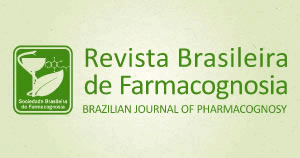Medicinal plants are an important source of treatment for many ailments, although little is known of the potential genotoxic effects of most species. In the present study, two species from diverse and medicinally important genera - Maytenus rigida Mart., Celastraceae, and Aristolochia birostris Ducht, Aristolochiaceae - were analyzed to identify potentially significant secondary metabolites and the possible effects of their aqueous and alcoholic extracts on cell division in the onion root stem (genotoxicity test). The phytochemical testing revealed the presence of a number of potentially important secondary compounds in both species, including phenols, flavonoids, triterpenoids, steroids, and saponins. In the genotoxicity tests, no chromosomal abnormalities of any kind were observed in either species. In the case of M. rigida, a significant increase in mitotic activity was observed at the highest concentration. No significant tendency was recorded in A. birostris, although a considerable increase in the prophase was observed at all concentrations of the alcoholic extract. The triterpenoid content of both species may be especially important from a medicinal viewpoint, although recent findings on the carcinogenic potential of Aristolochia extracts demands caution in the interpretation of the results, and the need for further research.
Allium cepa; extract; genotoxicity; medicinal plant; phytochemical analysis





